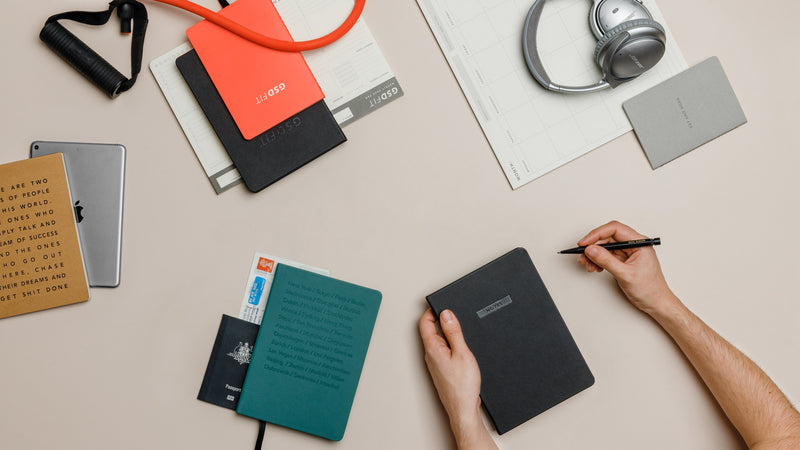
5 habits to incorporate into the new financial year
Posted by Adam Jelic on
Can you believe we’re halfway into 2021 already?! It only seems like yesterday when it was the beginning of the year and we were planning out our goals and visions for the life we want.
For many of us, June is an incredibly busy time because it marks the end of the financial year. So you can think of July as a bit of a clean slate, where you can start a new financial year afresh. Below are some tips and habits to focus on that will help you kickstart the new financial year on the right note.
1. Set some new (financial) goals
It makes sense to set new financial goals during this time of year. Here are some questions to springboard your thinking towards this:
- Want to hit a savings goal before the end of the year?
- Do you have a set number to help you buy your first home?
- Or itching for an epic post-pandemic travel adventure?
Whatever you’re working towards, make it official with a new financial year goal. Write it down and break it down into actionable tasks and smaller goals you could apply everyday.
2. Check in with your current goals
If you set goals at the beginning of the year, now is a great time to check in on them as it’s the 6 month mark. When evaluating each one, answer the following questions:
- Am I on the right track with my goal or have I strayed from it?
- What’s working and not working?
- What can I improve in my approach to this goal?
- Do I need to change or alter my goal to better fit my current lifestyle? (This happens more often than you think!)
From there, create an action plan that covers the next few weeks in July to help you get started on the right track.
3. Practice gratitude
Many of us forget to do this in our daily lives, but it’s a small habit with a big impact on your daily life. It has many benefits to it, including:
- Provides you with perspective when you’re overwhelmed
- Reminds you of the positive things in your life when you’ve forgotten
- Encourages a positive mindset when tackling your goals and to-do lists
We recommend you do this at the end of every day, just before bed. Having a dedicated notebook, like a gratitude journal, will also help you build this habit as you’ll be prompted to write in it every night.
4. Start your day with a to-do list, first and foremost
Starting your day with a to-do list immediately provides you with structure, helping to give you laser focus on what needs to be achieved. That said, we recommend you be realistic when writing a to-do list - only add what you can actually complete on that day. If you write everything on there, you’ll end up feeling more stressed than before!
Another technique to writing a to-do list is blocking out time to do certain tasks. For example, from 10am - 12pm, you can focus on writing project campaigns. Then at 1pm - 2pm, you can focus on catching up on emails. What’s great about this technique is it gives a start and end time to your workload, increasing your efficiency and motivating you to complete the task within the given timeframe. If you need a bit more help on this, we’ve recently launched our very own Time Block Desk Pad!
5. Aim for at least 30 minutes exercise, or just going outside
We get so caught up in our work that we forget to move our bodies. Exercise is incredibly important to stay focused and healthy, so we recommend incorporating a daily exercise routine somewhere in your day. It could be as simple as doing a quick morning jog, or an easy walk in the park. The point is to get your body moving, because movement will keep your mind active and reduce the possibility of mental burnout from work. And if you need a way to track your exercise, we’ve got the perfect stationery tools to help you out.
By Aleczander Gamboa